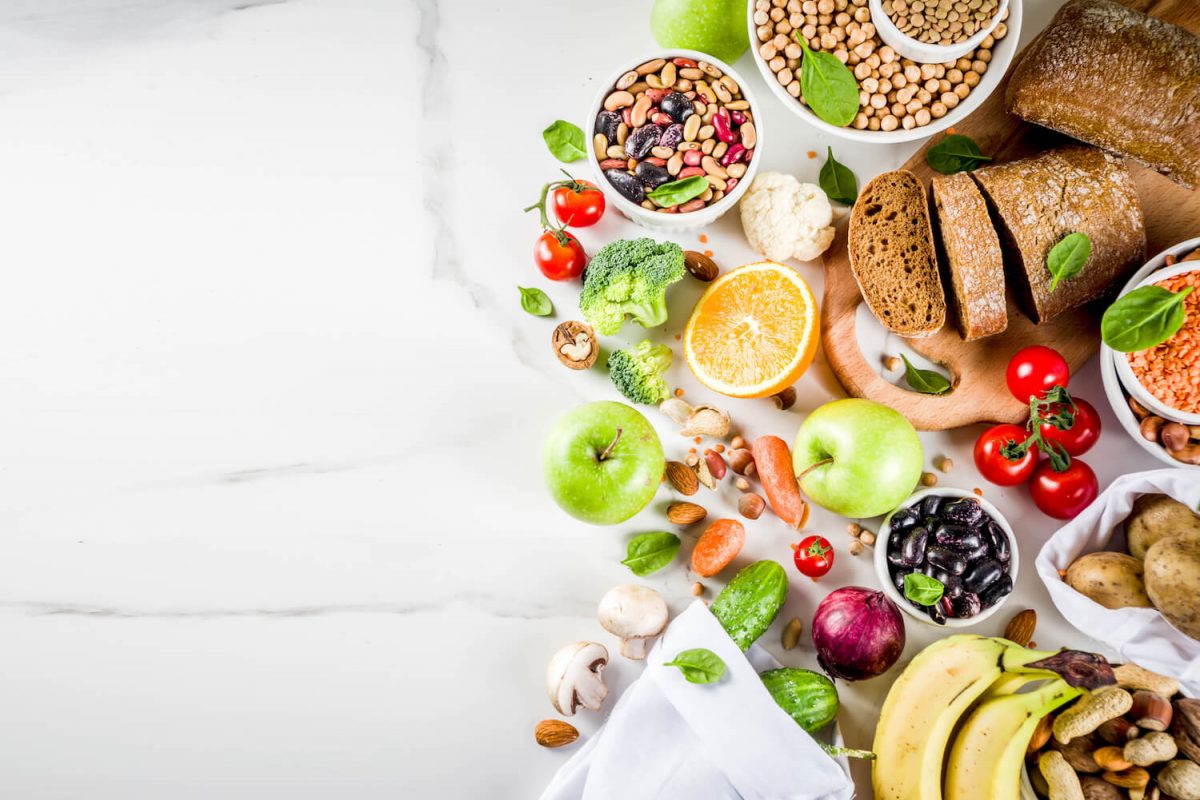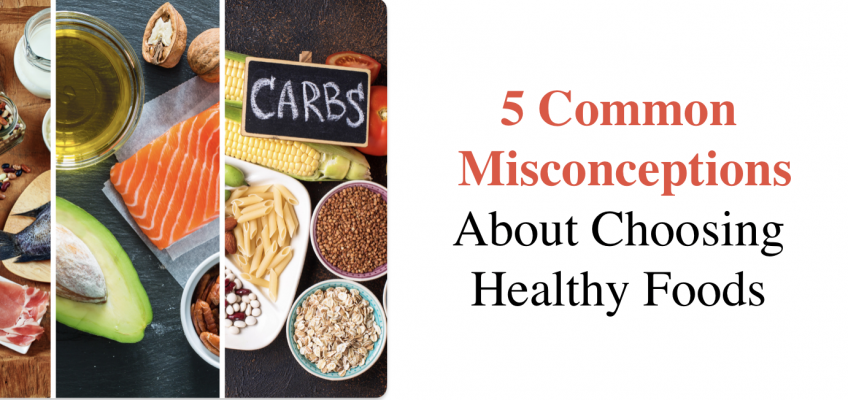In the world of nutrition, myths and misconceptions often abound, making it challenging for individuals to make informed choices about their diet. What’s healthy and what’s not? With so much conflicting information, it’s easy to get confused. In this blog, we’ll debunk five common misconceptions about choosing healthy foods, empowering you to make better decisions for your well-being.
1. Misconception: All fats are bad.
– Reality: Not all fats are created equal. While it’s true that excessive consumption of saturated and trans fats can increase the risk of heart disease, unsaturated fats, such as those found in avocados, nuts, and olive oil, are essential for overall health. These fats can actually improve cholesterol levels and reduce the risk of cardiovascular disease when consumed in moderation.

2. Misconception: Carbs are the enemy.
– Reality: Carbohydrates often get a bad rap, especially with trendy low-carb diets gaining popularity. However, not all carbs are detrimental to health. Whole grains, fruits, and vegetables are rich in complex carbohydrates, fiber, vitamins, and minerals essential for optimal health. The key is to focus on whole, unprocessed carbs and watch portion sizes rather than demonizing an entire food group.

3. Misconception: All protein sources are equal.
– Reality: While protein is crucial for muscle repair and growth, not all sources of protein offer the same nutritional benefits. Plant-based protein sources like beans, lentils, tofu, and quinoa provide fiber, vitamins, and minerals along with protein. Additionally, opting for lean cuts of meat, poultry, and fish can reduce saturated fat intake compared to fattier cuts.

4. Misconception: Gluten-free means healthier.
– Reality: For individuals with celiac disease or gluten sensitivity, avoiding gluten is necessary. However, for the general population, going gluten-free doesn’t automatically equate to healthier choices. Many gluten-free products are heavily processed and may contain higher levels of sugar, unhealthy fats, and additives to mimic the texture and taste of gluten-containing foods. Opting for naturally gluten-free whole foods like fruits, vegetables, lean proteins, and gluten-free grains like quinoa or brown rice is a better choice.

5. Misconception: Natural sweeteners are always healthier than refined sugar.
– Reality: While natural sweeteners like honey, maple syrup, and agave nectar may offer small amounts of vitamins and minerals compared to refined sugar, they’re still high in calories and can spike blood sugar levels if consumed in excess. Moderation is key when it comes to all sweeteners, whether natural or refined. Additionally, artificial sweeteners, while low in calories, may have their own set of health concerns and should be used sparingly.

Navigating the world of nutrition can be challenging, especially with the abundance of misinformation surrounding healthy eating. By debunking these five common misconceptions, we hope to empower you to make more informed choices about the foods you consume. Remember, a balanced diet rich in whole, unprocessed foods is the foundation of good health. So, next time you’re faced with conflicting dietary advice, take a step back, question the source, and always prioritize evidence-based information for your well-being.








